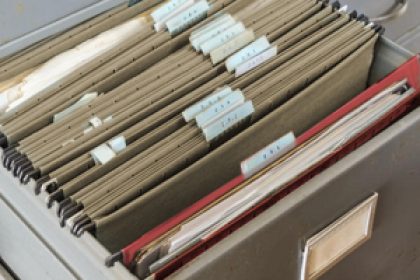

There are a few common problems in the IT world that you just see over-and-over again to the point that many users are quite familiar with them. Some of them are intuitive like a password lock out or a bad update where you experience a problem, your IT guys tells you what it was, and it pretty much makes sense. And then there are caching errors…
What is a Cache and Why Does My Computer Use Them?
A cache is a small section of memory or disk space reserved to in some way allow a program to run faster. If you think of your filing cabinet as your computer, it’s full of all sorts of documents that you may almost never look at, and then there are those documents like birth certificates and social security cards that you need much more often; so, you put them in a special folder at the front so you can find it quickly every time. If you do this, then you’ve created a kind of cache.
Another way caches work is to store data that’s already been processed so that you don’t have to reprocess it every time you need it. This is like keeping a copy of your completed taxes. If you have all your w2s, receipts, etc. you COULD redo your taxes from the original data if you ever had to provide a copy of them for any reason, but it is far more convenient to just hang onto that finished document. This is another kind of cache.
How do Caching Errors Happen?
So far, caching sound like some organizational no-brainer, and mostly it is, but why do they cause problems? That boils down to things changing how you don’t expect them to. If you think about the first scenario, imagine that you started taking lots of documents from everywhere else and putting them in your cache. This would eventually make your cache take just as long to look through as if everything was normally sorted; so, the thing designed to speed you up may actually slow you down. Like this, sometimes a program may start to consume large sums of memory and greatly slow down after prolonged usage because it just keeps hanging on to more and more.
The second case where you are holding processed data is especially great for speeding things up, but what happens when the information you derived your cache from changes? Maybe you filed your taxes, then realized you have an extra tax form you forgot to include. Now all those processed tax forms are no longer relevant and your taxes must be reprocessed. When this kind of caching error happens, you need to “clear your cache” which is like telling the computer to go double check the original documents and reprocess everything.
